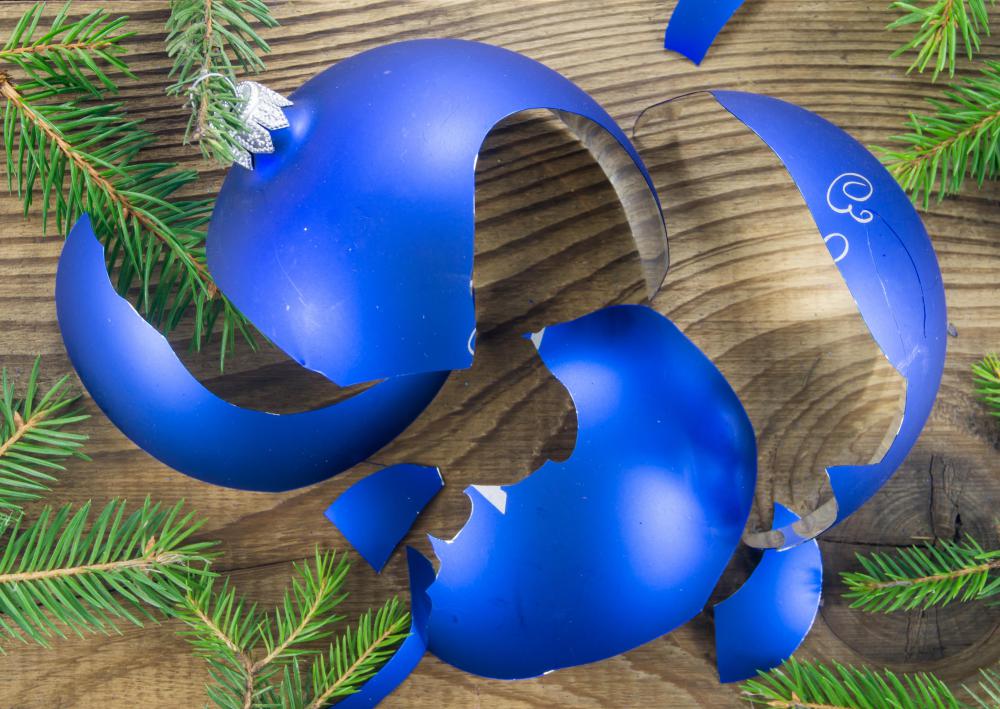Last Christmas my wife handed me an ornament that was broken -- the kind that is supposed to make sounds and move. I found nothing about decorating as satisfying as taking it apart, repairing what was broken, and gluing it all back together again so that it was good as new, well, almost. It is perhaps the mind of man that, not content to watch and honor the Creator, we try to take apart, tinker with, understand how things work, and improve upon them. We want to be the Creator. We will not settle for being the creature.
Perhaps nothing is more illustrative of the Fall than the remains of something we have taken apart, do not understand, and cannot repair. We are left with the pieces that no longer fit and no longer work. But that does not deter the desire within to tinker with and play the Creator (even when the outcome is less than successful).
The Fall has certainly not metered us from thinking that we might improve upon God's domain. From the incessant need to introduce non-native species and the usual disappointing or destructive outcome to the little things we take apart and attempt to improve upon in our workshops, we are convinced that we know what we are doing, we are in control of the outcomes, and we can make it all better (like the old intro to The Bionic Man -- we have the technology and we can make him better than he was before).
Within the Church this translates into the constant desire to fiddle with the things of God -- to deconstruct the Scriptures so that we can prove we are the master of its words (and therefore the Word) to way in which we attempt to make reasonable the mysterion (sacraments) and their workings. We have our anxieties about God, about the things of God, about the ways of God, and about the promises of God. So in nearly every aspect of the Church's life we end up competing with God -- turning everything into a program, a series of clear and logical steps, that inevitably lead to a predictable outcome.
I suppose what I do in my workshop has limited consequences for the greater world but we have all witnessed the results of our tinkering in nature (from those insipid carp who jump into the boat but are mostly worthless to eat to the caterpillars who did not turn into silkworms but still eat our trees to the bark). As bad as this is, it is nothing compared to the results of our tinkering with God's things. We turn Gospel into Law and pat ourselves on the back. We treat the Gospel as license and glorify a freedom that neither serves nor sacrifices and think we figured it all out. We invent ways for churches to grow and programs that skip Scripture and go right to the works of man and figure that these are more effective than waiting upon the Lord to do what He has promised. Luther once put it graphically; in doing this we eat our vomit again.
Man the tinkerer needs to give way to the patient man who waits upon the Lord's works, ways, and timing. This man is content to be a doorman in the House of the Lord. This man is happy to let God be God. This is the goal of faith, the direction of righteousness, and the mark of sanctification -- that we practice self-control over our constant need to tinker, improve, and make a new generation of the things of God. In the end we are not just tinkering but destroying the very source of our comfort, the agency of our consolation, and source of our hope. For the means of grace are nothing less than Christ and the Gospel at work.

1 comment:
"Where there is un-thankfulness and condemning (tinkering - added for emphasis) of the all-saving holy Word which is clearly and purely preached, after the bright shining light there will come fearful darkness. When God wishes to punish a people or kingdom, He first takes away from them good and godly teachers and preachers; He also bereaves them of wise, godly, and honest rulers and counselors. Then the common people are secure and merry, satisfied to be allowed to go on in willfulness, caring nothing for the truth and divine doctrine, if they may only live as they please. But then God lays the ax to the root of the tree, and soon cuts it down." Martin Luther
Post a Comment